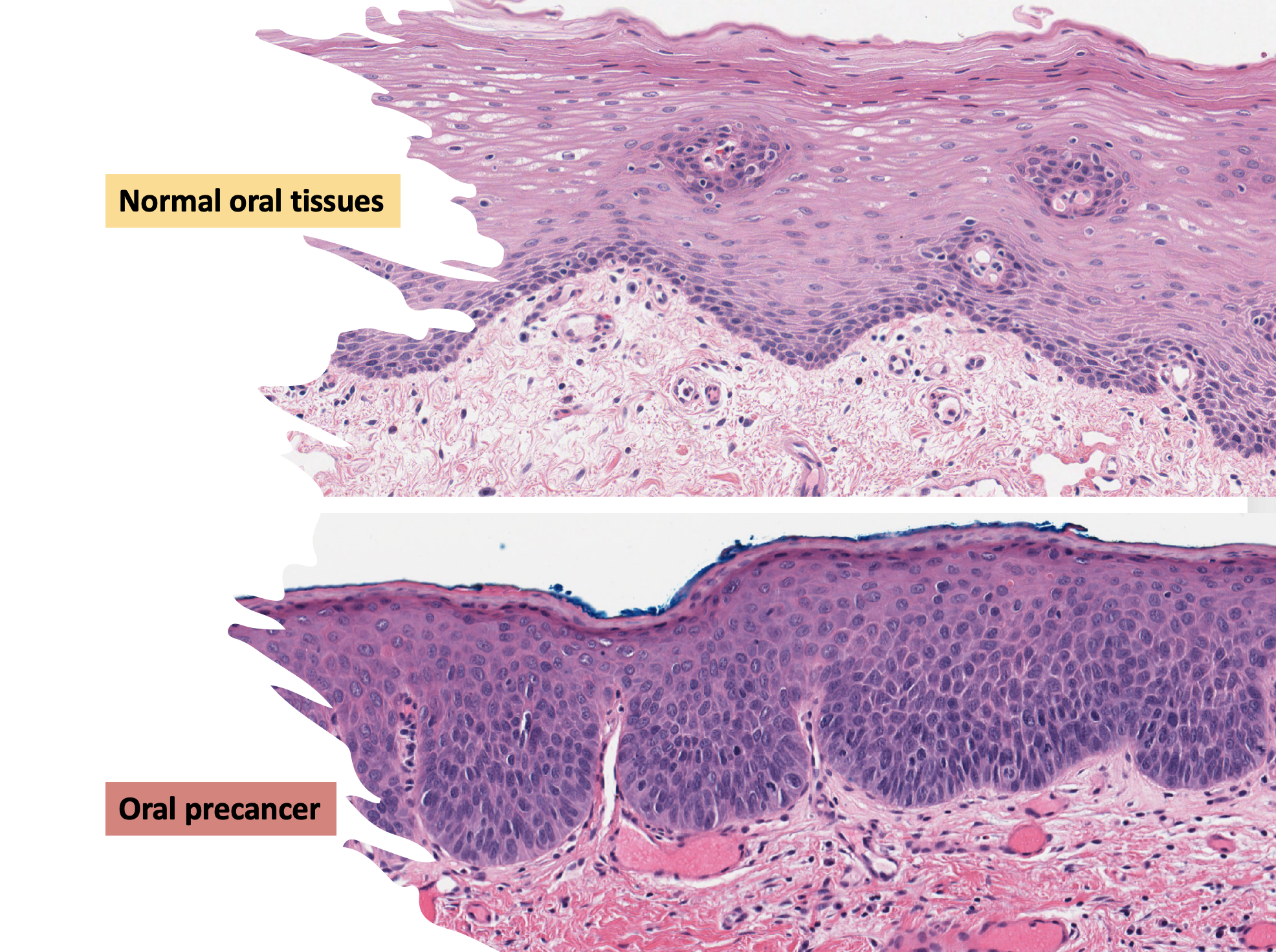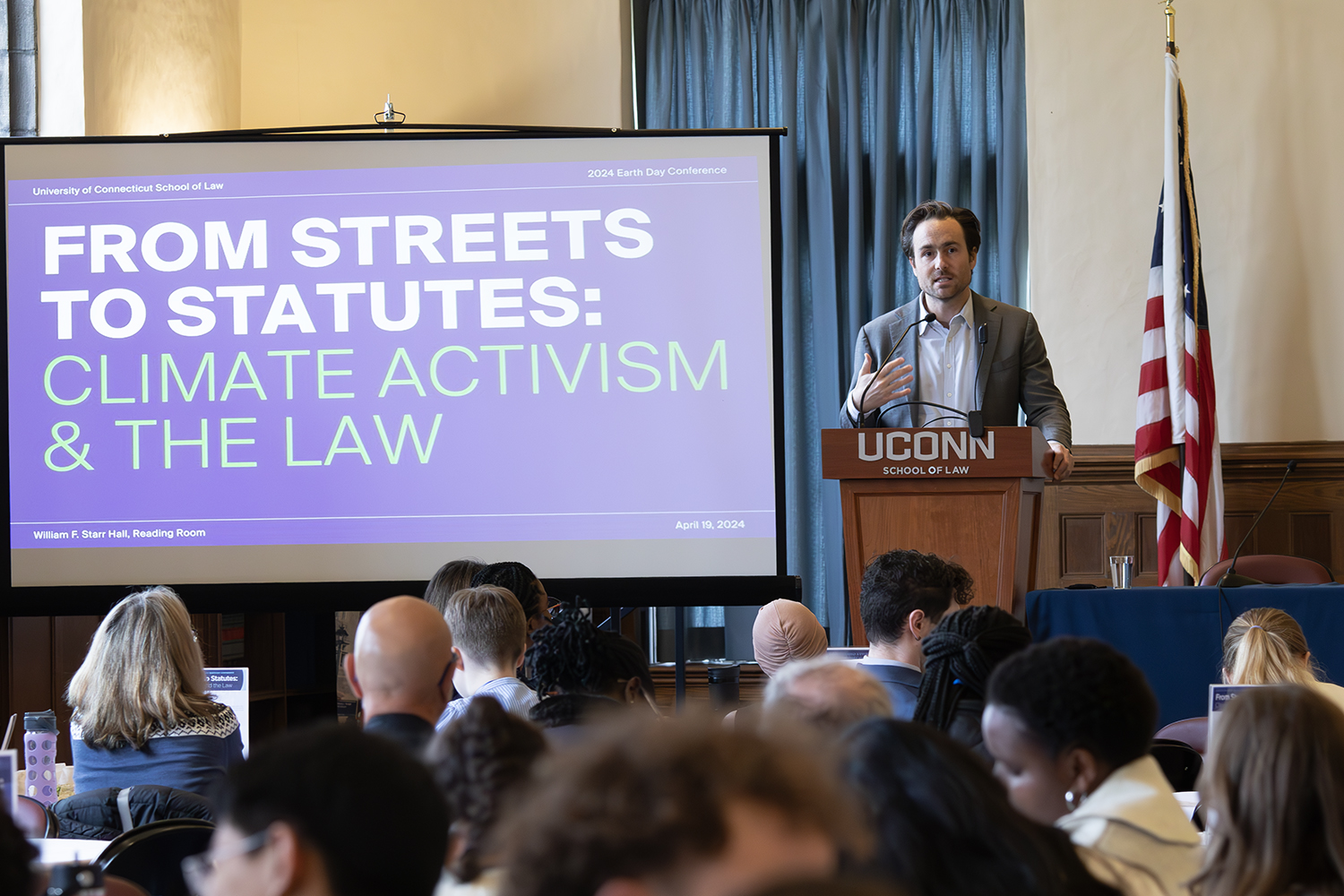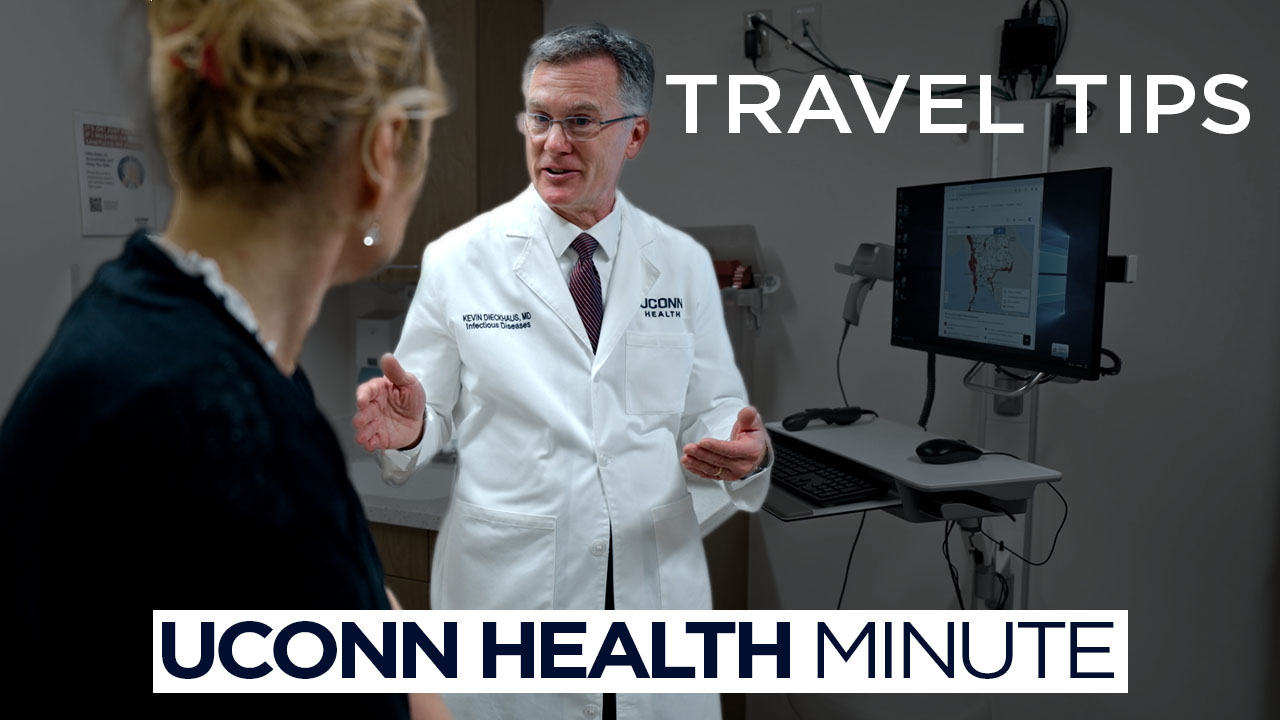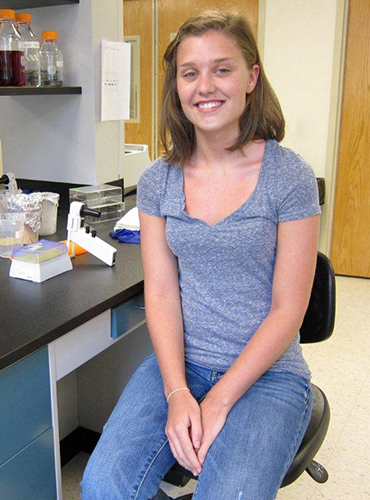
Sarah Grout was only six years old when a terrible stomachache at gymnastics practice led to a rushed ride to the hospital, where her appendix was removed before doctors discovered the real problem – an E. coli infection. She spent two weeks in the hospital recovering. Sarah, now an undergraduate at UConn, spent this summer in a biology lab in Beach Hall, running RNA interference experiments for her research project on how enterohemorrhagic E. Coli, often associated with food-borne illness, sets up its potentially fatal infection in humans.
Robert “Bo” Powers came to UConn last fall as an honors student in cognitive science. This summer he designed an artificial neural network that he will use in his research project on metonymy – what causes people to choose certain metaphor-like descriptions. For instance, he wonders, why does a waitress tell the cashier, “The ham sandwich at Table 3 wants his check.”
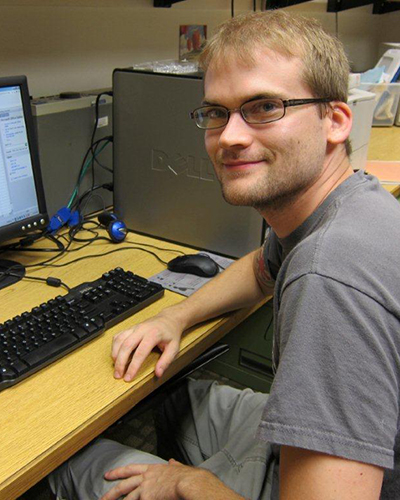
“Creative use of language has deep implications when considering how languages change within a culture, what is considered ‘cool’ or novel, and how ambiguity is resolved,” he wrote in his research proposal.
Grout, Powers, and 63 other students at UConn had their first full-time research experiences this summer, thanks to Summer Undergraduate Research Fellowships that provided them with up to $4,000 in stipend and supply funding and the opportunity to spend 10 weeks in the lab. Thirty-nine of the students were from CLAS, and the CLAS Dean’s Office provided $24,000 to the program.
While many of the students have worked on research projects during the regular school year, the nine hours a week they devote then, in between classes, is much less intense. A SURF award gives them the luxury of time to do a literature search, read widely on their topic, and design their own experiments.
“It’s really a great opportunity to be able to focus fulltime. I wouldn’t be able to get this much done during the year,” says Grout.
The fellowships make the difference between a summer spent pursuing their passion and a summer spent job surfing.
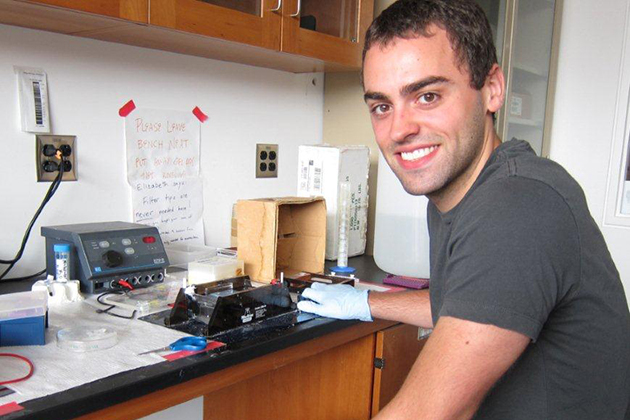
If he hadn’t won a SURF award, says Devin O’Brien, an ecology and evolutionary biology major from Ballston Spa, N.Y., “I’d be at home, trying to get a normal job that wouldn’t further me in my career path.” Instead, he spent seven hours a day, five days a week, in the lab.
O’Brien, who is founder and president of the Entomology Club at UConn, studies insects from an evolutionary and development perspective. He’s examining the role that three descriptively named genes – fringe, frizzled, and dishevelled – have on the appendage development of a species of red flour beetle, T. castaneum. Appendages – legs, wings, mouths – are an area of diversity that might be responsible for an insect’s success in the world.
O’Brien came to UConn as a pre-veterinary major, but found that “the more I worked with cows, the more I realized I didn’t like them.” After a brief stint as a pre-med major, he scaled down to insects, calling UConn “a great biology school.”
One of the eye-openers for students about lab life is how an experiment can go awry. Some have found that their carefully planned project had an outcome that was far from what they anticipated.

“It’s frustrating, but interesting, because you can come up with all new ideas to see what’s going on,” says Catherine O’Brien, a senior majoring in molecular and cell biology. She filled two large binders with lab reports this summer.
The protein she is studying is linked to various mitochondrial diseases. If biologists could find a way to study it outside the cell in a reconstituted form, it could advance research into these medical conditions, which have many variations and can affect vision, major organs, muscles, and nerves, among other things.
O’Brien, who is from Old Saybrook, started out as a nursing major at Endicott College in Massachusetts. Courses she took there in genetics and microbiology turned her interest to pre-med studies, and she transferred to Clemson. But she missed New England. Before transferring to UConn, she emailed Nathan Alder, assistant professor of molecular and cell biology, to see if she could work in his lab.
She now works independently in the lab, although under the supervision of a Ph.D. student in Adler’s group, Ashley Long. Long encouraged her to stake out her own research territory, and O’Brien says that gave her the confidence to explore her topic. In her previous research experiences at other schools, she was not allowed so much responsibility, she says.
Her SURF summer has taught her that research “is really a thinking process – it’s about how you think and how you approach things. I couldn’t have guessed I would learn so much.”

